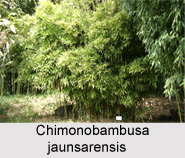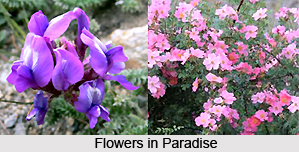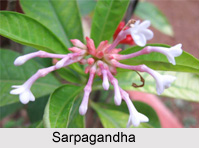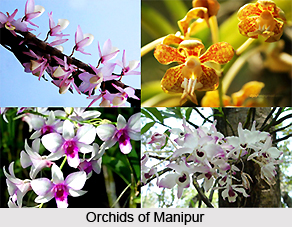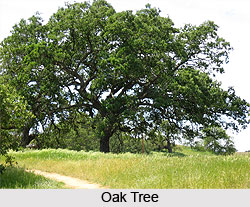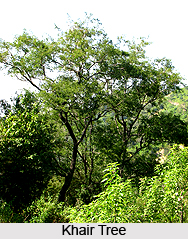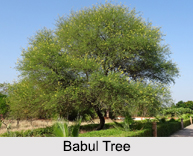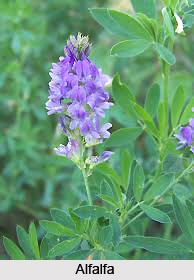 According to history the uses of alfalfa plant was known to the practitioners of medicine for its various remedial properties. Young alfalfa leaves were used by the traditional Chinese physicians to treat disorders of the digestive tract in the ancient times. Similarly, the Ayurvedic physicians of India prescribed the leaves and flowering tops for poor digestion. Alfalfa was also considered curative for water retention and arthritis. It is also recommended to treat jaundice and to encourage blood clotting. Although noticeably absent from many classic textbooks on herbal medicine, alfalfa did find a home in the texts of the eclectic physicians as a tonic for indigestion, dyspepsia, anemia, loss of appetite, and poor assimilation of nutrients. These physicians also recommended the alfalfa plant to stimulate lactation in nursing mothers, and the seeds were made into a poultice for the treatment of boils and insect bites. Alfalfa is very beneficial in cleansing urinary system by means of eliminating retained water. It helps in balancing hormones as well as rebuilding body after a prolonged illness. It also stimulates milk production in new mothers.
According to history the uses of alfalfa plant was known to the practitioners of medicine for its various remedial properties. Young alfalfa leaves were used by the traditional Chinese physicians to treat disorders of the digestive tract in the ancient times. Similarly, the Ayurvedic physicians of India prescribed the leaves and flowering tops for poor digestion. Alfalfa was also considered curative for water retention and arthritis. It is also recommended to treat jaundice and to encourage blood clotting. Although noticeably absent from many classic textbooks on herbal medicine, alfalfa did find a home in the texts of the eclectic physicians as a tonic for indigestion, dyspepsia, anemia, loss of appetite, and poor assimilation of nutrients. These physicians also recommended the alfalfa plant to stimulate lactation in nursing mothers, and the seeds were made into a poultice for the treatment of boils and insect bites. Alfalfa is very beneficial in cleansing urinary system by means of eliminating retained water. It helps in balancing hormones as well as rebuilding body after a prolonged illness. It also stimulates milk production in new mothers.
The plant of alfalfa contains vitamins like vitamin A, vitamin D, vitamin E and vitamin K. It also contains few important minerals such as selenium. Alfalfa sprouts can be used as a better substitute for corn and wheat. The roots of alfalfa contain saponin that has a positive effect on the cardiovascular, nervous and digestive systems. Alfalfa is a generous source of Vitamins (A, B complex, C, K, and E), Beta carotenes, phosphorus, calcium, choline, octacosonal, minerals like iron, magnesium, sodium, potassium, phosphorus, and other elements and nutrients. The most notable nutrients in the contents of alfalfa are crude fiber, cobalt, fat, Niacin and protein. Alfalfa is used in the treatment of insomnia, gout, arthritis, kidney problem, peptic ulcers, diabetic regulation, fatigue, anaemia. Alfalfa has also been extensively used for a number of other medicinal reasons like to treat kidney stones, to relieve swelling, to support the skeletal, glandular and urinary systems.
Alfalfa plays various roles in various situations. They can be used as tonic, laxative, antifungal, diuretic, hepato-protective, and anti-inflammatory including its usage as detoxifier, nutritive and digestive. The sprouts of the seeds contain phytoestrogen that can help to block the body`s estrogen receptor sites and thus reduces the effect of the estrogen produced by the body. Alfalfa is also referred to as Lucerne, Purple Medic, Buffalo Grass, and Chilean Clover. Due to its great quantity of useful components this herb is a very valuable mean of treatment and prevention. Its pharmacological active ingredients that are concentrated in the plant`s sprouts and leaves retain their healing power in the state of juice, powder and others. Homeopaths and herbalists and the practitioners of Naturopathy use alfalfa to treat anemia, debility in convalescence, feminine disorders relating to hormonal imbalance and menopausal complaints. The herbs enzymes are also active in promoting food assimilation in the body and moreover this herbal plant is used in folk medicine as a treatment for stomach ulcers. It has also been stated by some of the researchers that alfalfa may also slightly lower blood sugar levels due to its high manganese content. Alfalfa is often used for genital urinary support as well as for keeping blood lipid level in order. It may help build iron levels in blood. The recent study in medical science admit that after anti-cancer treatment with chemotherapy containing cyclophosphamide such as in Cytoxan and Neosar , alfalfa proved effective in reversing the immune depression caused by the drugs.
 The antibiotic and antifungal properties of alfalfa have been proved effective to cure many diseases as it contains saponins. Alfalfa has shown some activity against tuberculosis bacteria, while aqueous and volatile extracts of alfalfa are antibacterial against gram negative bacteria. The basic proteins viz. histones in alfalfa display antitumor activity. These substances include high levels of l-lysine, aspartic acid, and glutamic acid. Tumor stimulating fractions were also found in alfalfa containing large amount of l-arginine. The hypocholesterolemic effect of alfalfa root saponins can restrain the cholesterol to increase in blood. Even the root of alfalfa has a hemolytic effect. Alfalfa is high in iron, which may cause it to interfere with the absorption of tetracycline. The nutritional value of alfalfa is highly considered in the medicine and in alternative treatments as it is a useful livestock fodder and a highly recommended herb for the human diet as well.
The antibiotic and antifungal properties of alfalfa have been proved effective to cure many diseases as it contains saponins. Alfalfa has shown some activity against tuberculosis bacteria, while aqueous and volatile extracts of alfalfa are antibacterial against gram negative bacteria. The basic proteins viz. histones in alfalfa display antitumor activity. These substances include high levels of l-lysine, aspartic acid, and glutamic acid. Tumor stimulating fractions were also found in alfalfa containing large amount of l-arginine. The hypocholesterolemic effect of alfalfa root saponins can restrain the cholesterol to increase in blood. Even the root of alfalfa has a hemolytic effect. Alfalfa is high in iron, which may cause it to interfere with the absorption of tetracycline. The nutritional value of alfalfa is highly considered in the medicine and in alternative treatments as it is a useful livestock fodder and a highly recommended herb for the human diet as well.
The powder derived from dried alfalfa are of immense medicinal value as it is the source of increasing the overall energy supply, fat metabolism promotion (due to the eight different enzymes contained in alfalfa), aiding the immune system, general detoxifying and alkalizing of the organism. It is also a great tonic for general health and well-being. Moreover, it stimulates the growth of supportive connective tissue and is favorable for weight gain. Elements contained in alfalfa powder extract have a great antiseptic capability that cleanse and purify the body from toxins. The form of extract is beneficial in the respect that it represents a potent means of medication, while being highly digestible and readily accepted by the organism.
In addition to these, alfalfa is further used in alleviating inflammation of the bladder, bloating or water retention, indigestion, constipation, halitosis. It is also a nature-provided laxative and has been used as a remedy for stomach upsets based on its diuretic effect. Apart from the substantial use of alfalfa in Herbal therapy, Naturopathy, Homeopathy and Ayurveda, the usage of this herbal plant is also popular in some tribes and folks. They use alfalfa in treating diabetes and malfunctioning of the thyroid gland. It has also been reported effective in the rehabilitation programs for narcotic and alcohol addictions.
Though alfalfa has many uses in medicinal field but there are also some side effects that can occur in some cases of the consumption of this herb or medicines made out of this herbal plant. It is recommended not to be taken during pregnancy. Even consumption of this herb is contraindicated in autoimmune diseases or when using blood thinning or anticoagulant medication such as warfarin. Ingestion of very large amount of the seed or sprouts of alfalfa has been linked to the onset of systemic lupus erythematosus (SLE) in animal studies. It has also been linked to the reactivation of SLE in people consuming alfalfa tablets. SLE is an autoimmune illness characterized by inflamed joints and a high risk of damage to kidneys and other organs. The chemical responsible for this effect is believed to be canavanine.
Disproportionate intake may cause photosensitivity, and breakdown of red blood cells. It should also be noted that animal studies indicate that iron plus allopurinol may lead to increased hepatic iron concentration. Because of the presence of eugenol in alfalfa reduces certain liver microsomal hydroxylating systems. This produces toxic effects from drugs normally metabolized by those systems. The presence of tyramine or tryptophan in alfalfa could produce hypertension if monoamine oxidase inhibitors (MAOI`s) are also being used.
